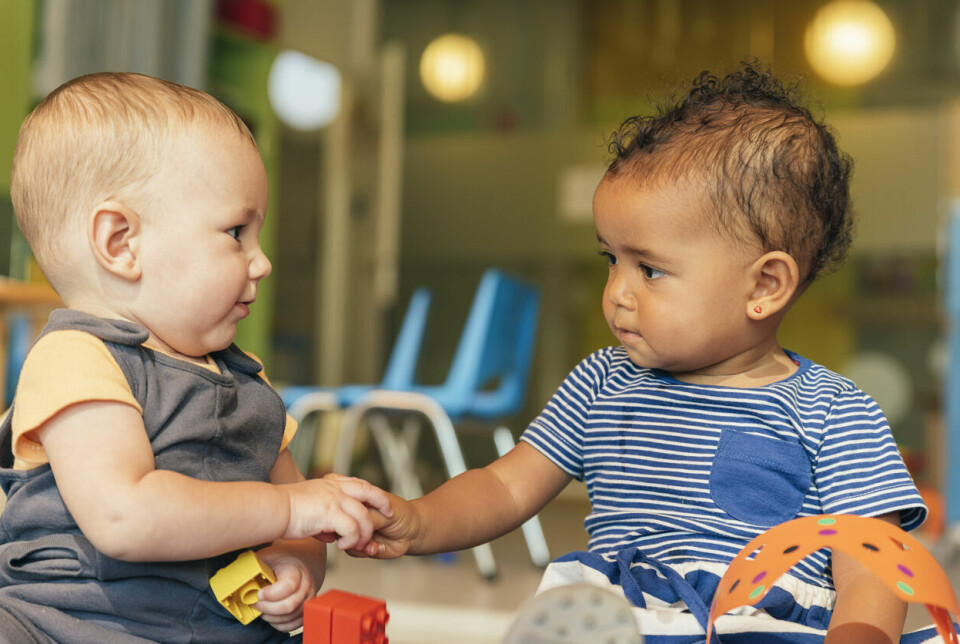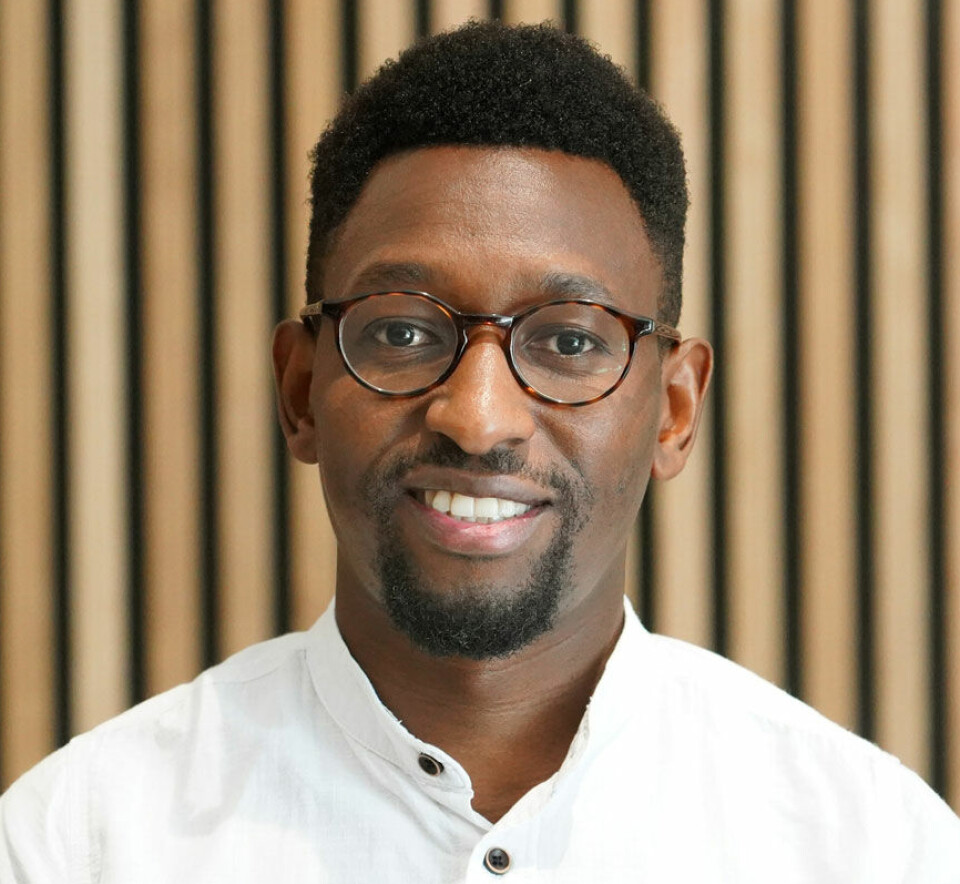THIS CONTENT IS BROUGHT TO YOU BY THE University of Agder - read more

Refugees in kindergartens: "Mutual trust is key"
In kindergarten, children learn about what is expected of them in Norway. But parents are also met with expectations.
When a refugee family arrives in Norway, kindergarten might be one of their first encounters with public services.
Eric Kimathi has explored integration in Norwegian kindergartens at the University of Agder.
Different needs
In his research, Kimathi interviewed 28 people. 13 of them were kindergarten staff, and 15 were parents with a refugee background.
“Security was something that often came up in the conversations, especially when I talked to staff. Security is essential for all children, but it's especially important for children of refugees,” he says.

However, refugees come from different backgrounds, and not all have the same needs.
“Some children of refugees have experienced traumatic events, while others have not. It's important that kindergarten staff do not automatically assume that children of refugees are traumatised,” he says.
Learning to be a child in Norway
Kimathi writes about the 'civilising' process that takes place in kindergartens. This is a term he borrowed from Danish anthropologists. They describe kindergartens as civilising institutions.
“Civilising can be a controversial term because of its colonial overtones, but I use it in quotation marks to explore the ambitions and ideals of integration that the Norwegian state has for immigrants and refugees,” he says.
For kindergarteners, ‘civilising’ entails norms, routines, and principles of being a child in present-day Norway.
“For instance, Norwegian kindergartens emphasise independence. Small children are allowed to eat with a knife and fork, for example, unlike in many parts of the world where parents typically handle these utensils for their children,” says Kimathi.
Differences and concerns
In kindergarten, children learn about what is expected of them in Norway. But parents are also met with expectations.
“For parents, civilising entails learning the norms of upbringing that are in line with what the authorities recommend. Many immigrants come from places where the state is not involved in raising kids. They may feel like the welfare state interferes with their parenting when it protects and supports children,” says Kimathi.
Kindergartens are obligated to report any concerns to the Child Welfare Services. This highlights the role they have in teaching parents how to be parents, according to the researcher.
“The parents I interviewed didn't use the term surveillance, but they described experiences that suggested a sense of fear or concern when meeting staff at the kindergarten. They felt they had to prove they were good parents,” he says.
Trust is crucial
Many of the parents planned how to make a favourable impression, but others felt comfortable being themselves and could openly express disagreement with the staff.
“An example is a young, single mother I interviewed. She expressed her disagreement in a confident way, which reduced her sense of surveillance. Dialogue can bridge the gap between parents and staff, foster a more genuine relationship and ease tensions between them,” says Kimathi.
The researcher says it is crucial to build trust between kindergarten staff and parents.
“When parents feel like they’re under surveillance, they may withhold information, which ultimately undermines trust. Staff should prioritise building trusting relationships with parents to ensure there is open dialogue around potential challenges in child-rearing,” he says.
Reference:
Kimathi, E. An institutional ethnographic study on the social organisation of integration work in Norwegian ECEC Centers, Doctoral dissertation at the University of Agder, 2024.

This content is paid for and presented by the University of Agder
This content is created by the University of Agder's communication staff, who use this platform to communicate science and share results from research with the public. The University of Agder is one of more than 80 owners of ScienceNorway.no. Read more here.
More content from the University of Agder:
-
Fear being rejected: Half pay for gender-affirming surgery themselves
-
Study: "Young people take Paracetamol and Ibuprofen for anxiety, depression, and physical pain"
-
Research paved the way for better maths courses for multicultural student teachers
-
The law protects the students. What about the teachers?
-
This researcher has helped more economics students pass their maths exams
-
There are many cases of fathers and sons both reaching elite level in football. Why is that?




































